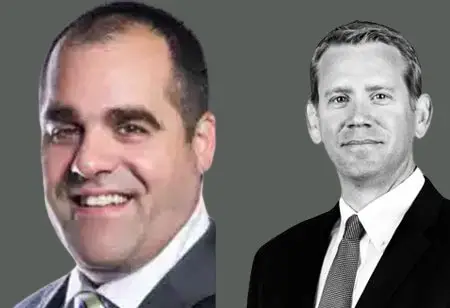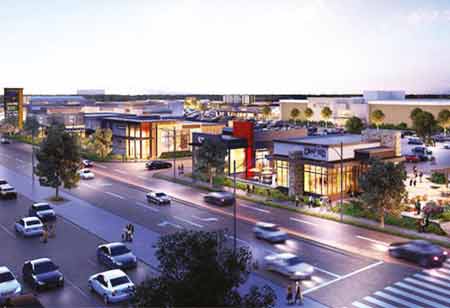Thank you for Subscribing to Construction Business Review Weekly Brief

Future-Proofing Construction through Client-Centric Innovation
Zachary Davis is a seasoned business development leader with a proven track record at high-growth real estate firms including Avison Young, WeWork, and Upflex. He specializes in driving innovation and growth by aligning strategy, client priorities and operational execution through a client-centric, agile and collaborative approach.
How has your diverse background in project and construction management influenced your approach to fostering innovation and driving strategic growth at Avison Young?
At Avison Young, I’ve brought a fresh perspective to driving innovation and growth—one grounded in client focus, agility and seamless cross-functional collaboration. For me innovation isn’t just about adopting new technologies. It’s about rethinking the way we deliver value. Today’s clients face mounting complexity: hybrid models, ESG mandates and portfolio realignments. They need a partner who can anticipate what’s ahead and adapt in real time. I’ve leveraged my background to position Avison Young as that partner.
My approach starts with listening to what our clients need. Whether it’s helping a corporate occupier reimagine its HQ or guiding a developer bring a lab conversion, we take a bespoke approach built around the client’s business goals. From there, I ensure our delivery is operationally sound as well as enhanced by the right mix of reporting, governance and transparency. This includes building cross-functional teams that integrate project management with workplace strategy, transaction management and change management.
On the growth side, I’ve built out a disciplined national business development engine, introducing structured pipeline reviews, strategic cross-sell frameworks and targeted go-tomarket plans by sector. This alignment of internal capabilities with external demand has generated hundreds of millions in qualified pipeline.
What are the most pressing challenges facing the construction industry, and what forwardthinking strategies are you implementing?
Some of the most pressing challenges I see in the construction and project management industry today include labor shortages, supply chain volatility, cost escalation and fragmentation across stakeholders. But beyond the operational hurdles, there’s a bigger strategic challenge: project management is still too often seen as a commoditized service rather than a value-driving business function. Shifting that perception is key.
Labor shortages, in particular, continue to cause delays and compromise quality, especially on complex or multi-site rollouts. To stay ahead, we’ve built a flexible bench of regional talent by cultivating strong subcontractor networks and strategic partnerships, ensuring we can scale quickly without sacrificing quality. We’re also investing in our people through upskilling, certifications and cross-training across discipline. On the procurement front, we’re mitigating cost volatility by getting involved earlier in project lifecycles, ideally during site selection or workplace strategy, to shape design within budget parameters. We also provide real-time cost modeling, informed by market intelligence that helps clients make faster and smarter decisions.
To combat fragmentation, we’ve leaned into a more integrated delivery model. At Avison Young, we unify project management, workplace strategy, change management and transaction advisory, providing clients with a cohesive, streamlined experience that accelerates speed to market and boosts accountability across vendors.
Lastly, to elevate project management from a tactical service to a strategic one, I work closely with clients to align KPIs to business outcomes. We’ve developed playbooks for sectors like life sciences, healthcare, higher education and financial services, demonstrating how project delivery directly impacts talent attraction, retention and brand experience.
What strategies have been most impactful in strengthening client relationships and expanding market presence within the construction and real estate sector?
construction and real estate sector? Our growth has been fueled by three core strategies: sector specialization, value storytelling and high-touch engagement.
We build tailored go-to-market plans, insights and case studies specific to each sector. Next, we lead with value, not just capabilities. When I approach a client or pursue an RFP, we start by asking the right questions: What does success look like for your business? Where is your current model falling short? Finally, we maintain a high-touch model that keeps relationships strong well beyond the project win. We conduct quarterly check-ins, build feedback loops and proactively offer insights, helping clients stay ahead, not just afloat. Internally, I’ve also instilled pipeline discipline with a national CRM strategy, weekly reviews and a strong qualification framework. The result? A 43 percent conversion rate from opportunity to proposal and millions in new revenue across service lines.
Through it all, client obsession is the through line. Stay ahead of their needs, lead with insights and deliver outcomes that matter
How are you harnessing technology and datadriven strategies to improve project delivery, mitigate risk and deepen client engagement?
Technology and data are central to delivering smarter, faster, more transparent results
At Avison Young, we’ve embedded platforms like Procore, Smartsheet and Power BI into our workflows to provide clients with real-time visibility into budget, schedule and risk. This reduces surprises and drives faster, more accountable decisions. Our customizable dashboards reflect each client’s priorities, milestones, budgets and change orders, in real time, replacing generic trackers. This empowers stakeholders with clarity, without the need to chase updates. We’ve also adopted early-warning tools that flag scope creep, budget deviations and vendor performance issues before they escalate. Analyzing data across asset types and regions, we’re building benchmarks and best practices that continuously improve delivery. On the engagement side, we’re enhancing client visibility through 360-photo documentation and integrated punch-list apps, especially valuable for clients managing multi-site portfolios remotely.
Importantly, I believe in using data to tell stories. Whether it’s briefing a CFO or debriefing with a client team, we translate technical data into business language. That ability to connect performance metrics to meaningful outcomes is what sets us apart.
Looking ahead, what emerging trends do you anticipate will have the greatest impact, and what guiding principles should industry leaders adopt to stay competitive and drive sustainable growth?
The construction and real estate sectors are undergoing seismic shifts, and sustainable growth will belong to leaders who are agile, integrated and relentlessly client-focused.
As office demand declines, adaptive reuse is rising, requiring creative teams to manage complex regulatory and infrastructure challenges.
ESG is now mission-critical. Clients want real sustainability, from embodied carbon tracking to WELL certification. Firms that bake ESG into delivery and quantify its impact will earn lasting trust.
Real estate and workplace strategy are converging. Projects aren’t just about space anymore; they’re about shaping experiences that drive culture and performance. Integration across strategy, change management and execution is no longer optional—it’s the future.
Labor shortages will persist, so long-term resilience depends on workforce investment: partnerships with trade schools, union apprenticeships and inclusive hiring are essential.
And digitization is the great accelerator. AI-driven estimating, drone inspections, and smart contracts aren’t future-state—they’re happening now. Tech-forward firms will deliver faster, smarter and with less risk. Through it all, client obsession is the through line. Stay ahead of their needs, lead with insights and deliver outcomes that matter. That’s how we stay competitive and indispensable in a changing world.








